For Elvis Presley, music was a gift from god. A gift that God had given him. This is how the director interprets it Baz Luhrman (Moulin Rouge!, The Great Gatsby) in the movie that is now premiering Elvis (in theaters June 24). Little Elvis, born in Tupelo, Mississippi, one of the few whites in a black neighborhood, he grew up among anonymous blues singers and gospel-energy masses. In one of them he had his epiphany, he discovered his gift, his future, his obsession, his passion, what could have been his salvation but also ended up being his downfall: music.
Elvis the Movie kicks off in Tupelo. That municipality that still preserves the tiny house in which the Presleys lived until they lost it and had to move in with relatives. Shortly after, with his father's release from prison, They moved to Memphis, Tennessee. where they continued to be surrounded by more of the black community than white. A fact that marked not only Elvis's musical style, but also his life and his character.
If there is one thing the film aims to do, it is to show that he was much more than a singer, that he started the sexual revolution with his movements and his voice and also he fought for civil rights and against racism from the stage.
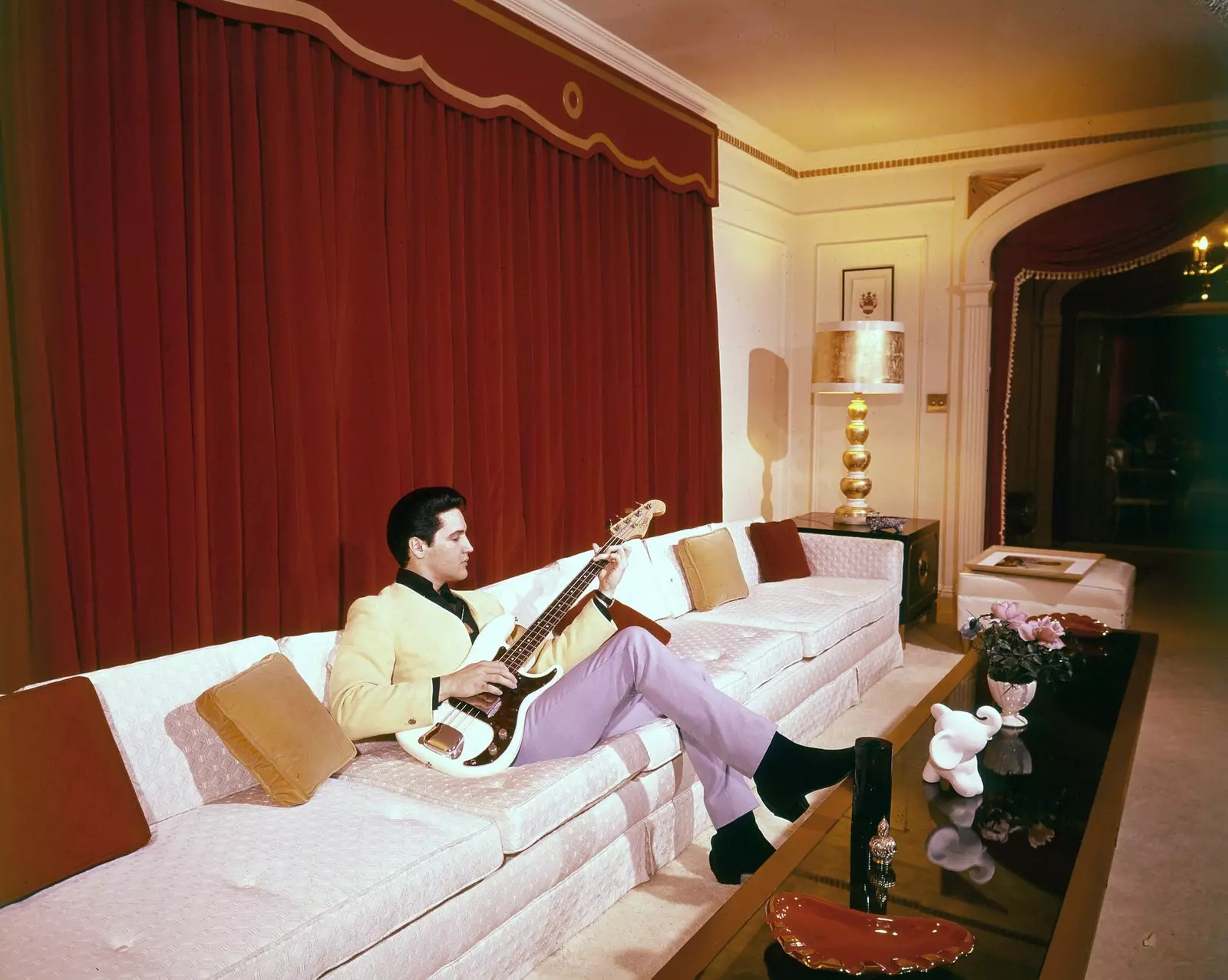
Elvis at Graceland.
Luhrmann uses Elvis's life as "a big canvas" in which to project the society of those 50, 60 and 70 that still reverberates today in terms of injustices and that insane way of running into success. Just as it happened to the singer.
Shreveport, in Louisiana, It is the first place where we find an adult Elvis, with a pink suit and a guitar, about to go on stage. There, at that fair, he discovered it Colonel Tom Parker (played by Tom Hanks), that he became his manager and his nightmare and on whom Luhrmann places all the blame. Is he the villain of that story? Maybe.
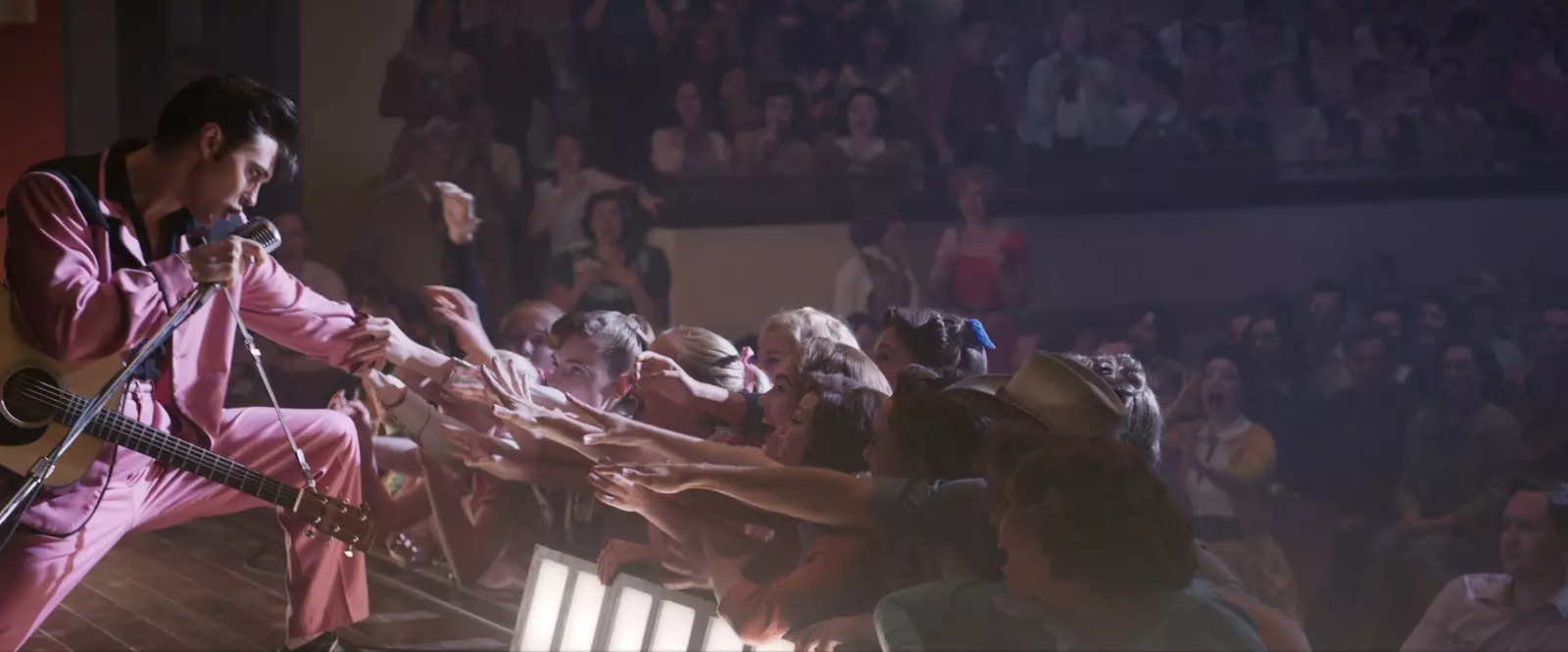
Elvis falling in love from his first concert.
with parker, Elvis (played by an incredible Austin Butler) all the fairs of half the USA were visited. From the southern states to Florida, from Texas to California. And of course whenever he could, he went back to Beale Street, blues street in memphis, where the singer breathed, was inspired and moved calmly even in his first years of fame.
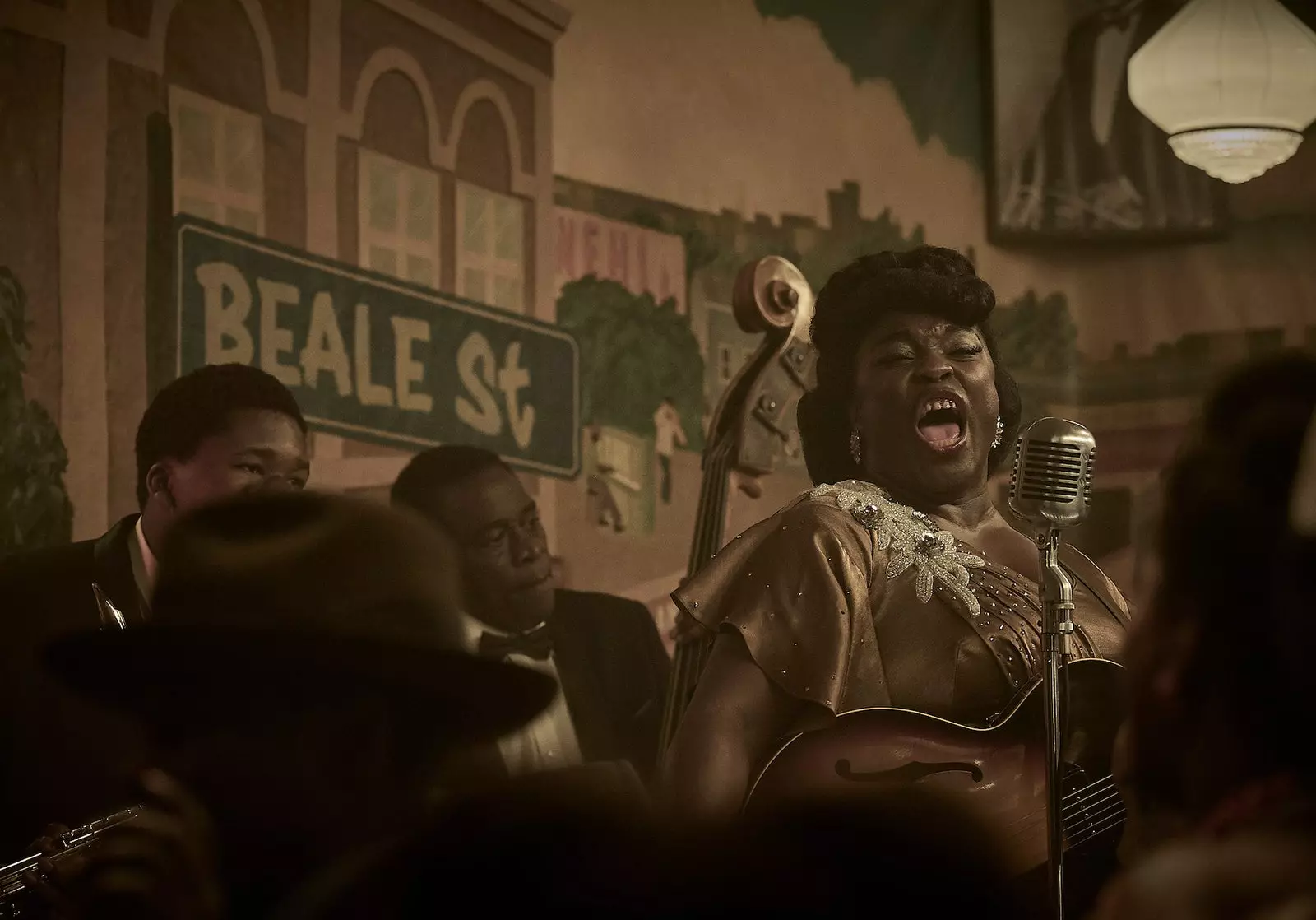
The Beale Street force.
Memphis was always his home and therefore not far from the city On March 19, 1957, he put down a $1,000 down payment on the house and ranch known as Graceland, for which he would pay a total of $102,500. He bought it for his parents and until his mother died, unexpectedly, the following year he reformed and decorated it to his liking, somewhat more sober than he would end up being.
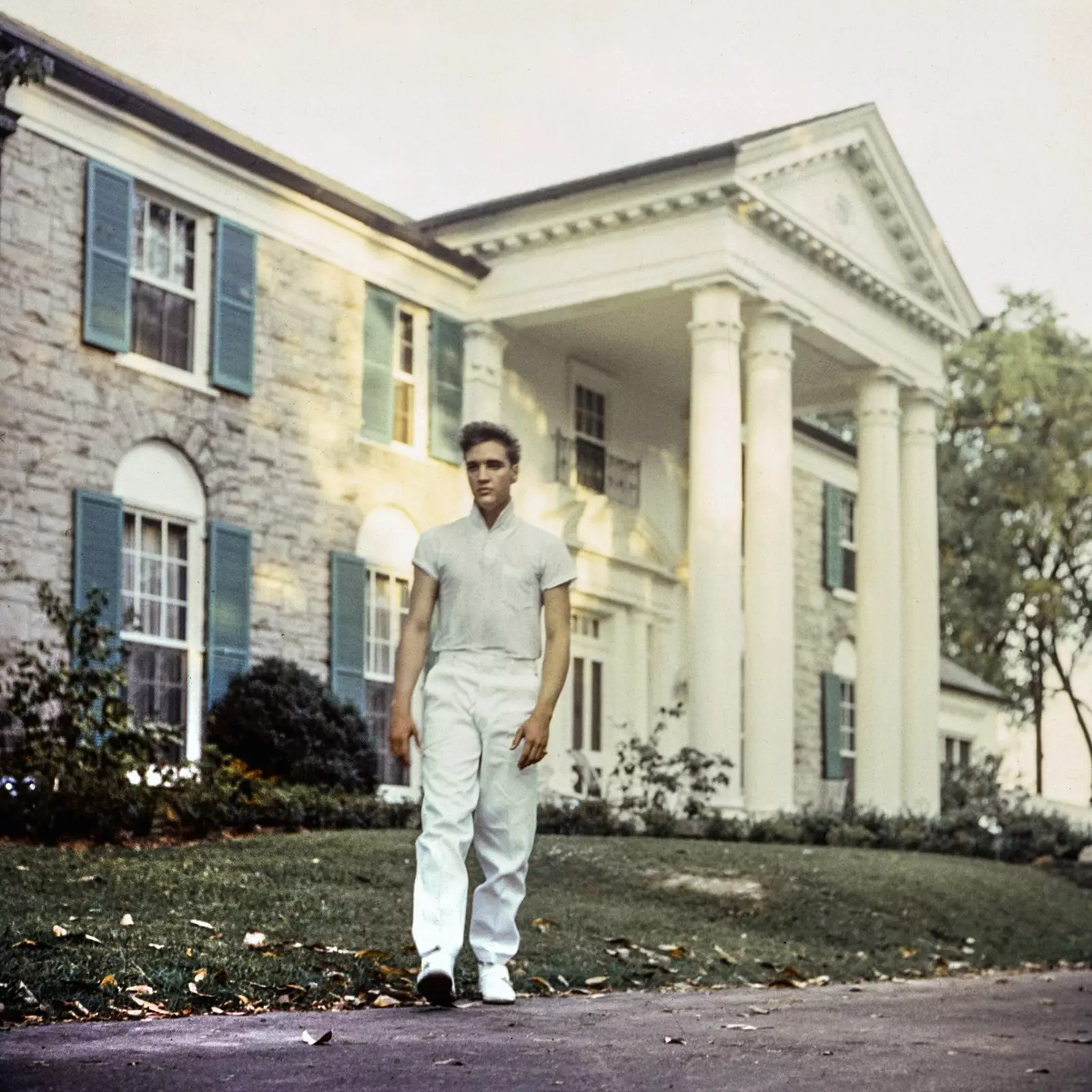
Elvis in front of his beloved Graceland.
COME TO GERMANY, ELVIS
After the sexual and political revolution he sparked, Elvis left (or was forced to leave) to Germany to fulfill his military service. There he met the love of his life, Priscilla, who would redecorate Graceland following Elvis's increasingly sophisticated and ornate taste.
How it comes out at the end in Luhrmann's film is what Graceland looks like today: colored carpets, heavy velvets, fabric or papered walls as well as ceilings and even matching the upholstery of some furniture; a billiards room, a room with several televisions, a white grand piano, a bar, a swimming pool, many, many cars, a private plane… A visit is highly recommended on any visit to Memphis. for something receives 600,000 visitors a year, just behind the White House.

One of the lounges and music room at Graceland.
In the film, they have recreated it, the house, and all the locations. They did not shoot in any natural space, all built, trying to be faithful to reality (although passed through the gaze of Colonel Tom Parker, who narrates the film), in the studies of Gold Coast, Australia, Luhrmann's country of birth. This could be a disappointment, but the reality is that the director of the Moulin Rouge! creates such a haven of glitz and decay that is not to be missed.
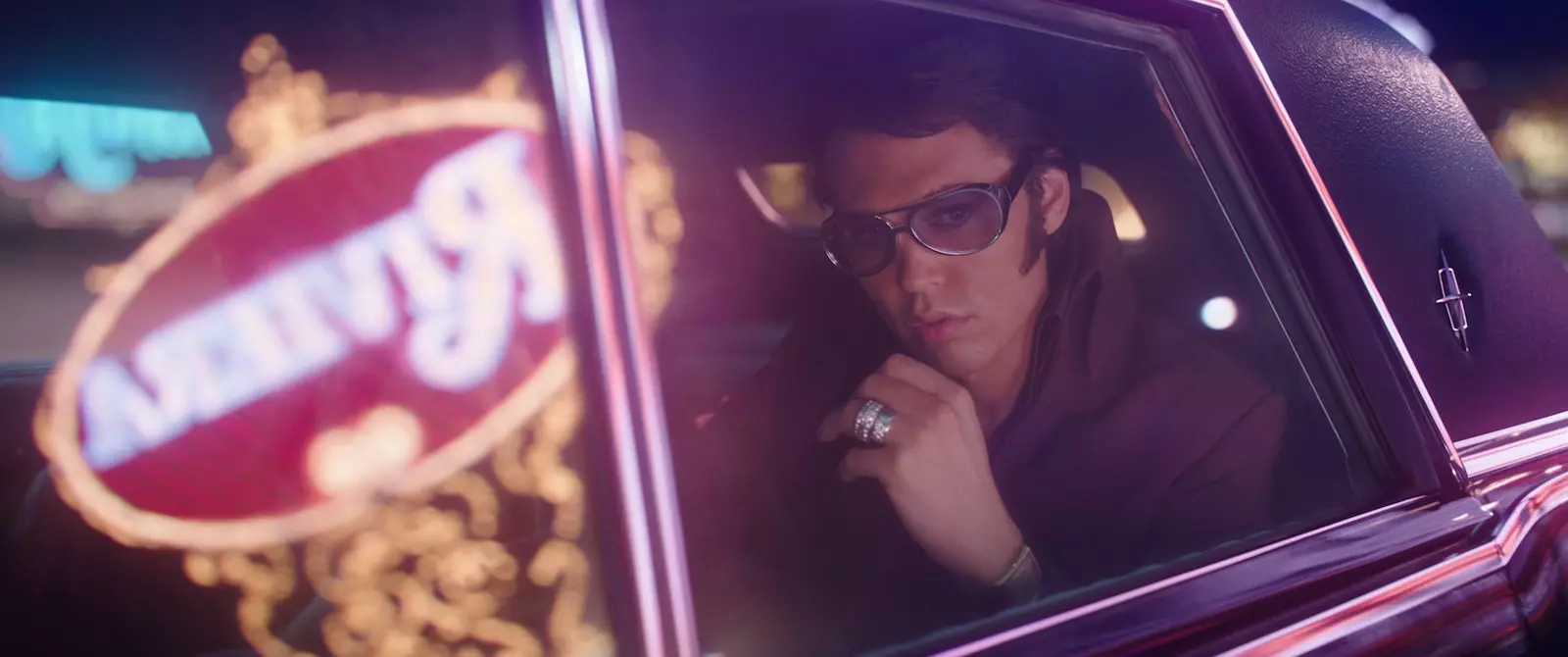
The loneliness of success in Las Vegas.
THE KING OF VEGAS
The last stop in the life of Elvis Presley was Las Vegas. In a deal (almost hoax) Parker arranged for him, the king of rock began a residency at the international hotel that tied him to the city much more than he would have wanted.
His mental state, his paranoia, his physical condition prevented him from going on tour in Europe and the rest of the world as he wanted. And he entered a desperate spiral of loneliness in the midst of the success that led to his death on August 16, 1977, at his beloved Graceland, at just 42 years old. A tragic end to the journey. "We're caught in a trap I can't walk out."
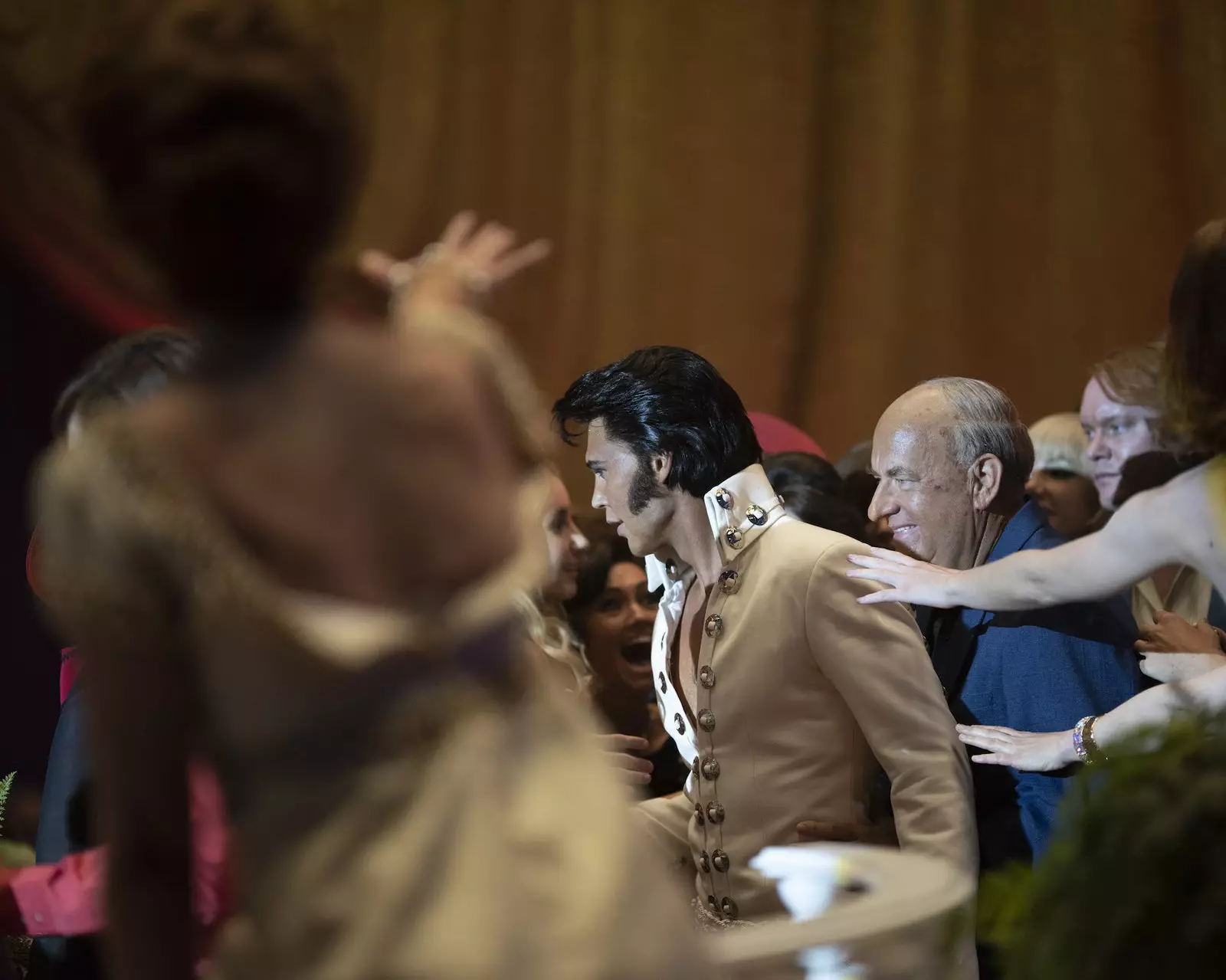
The King with Parker.
